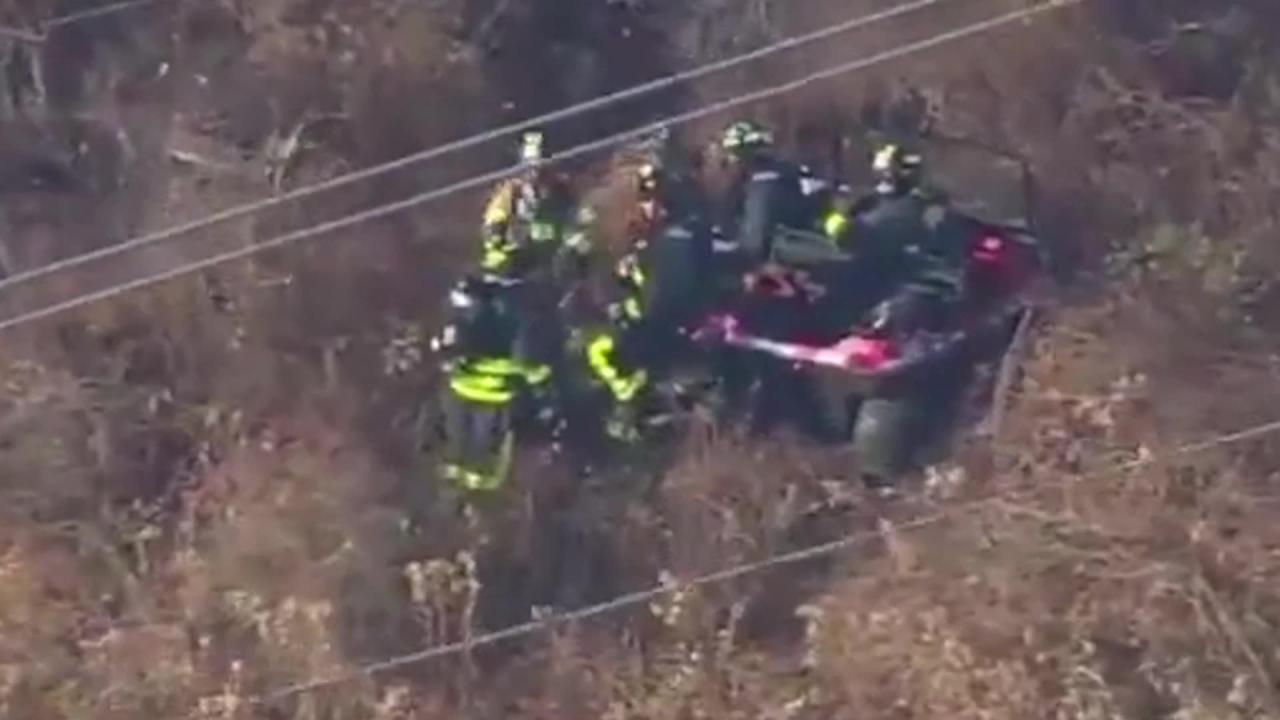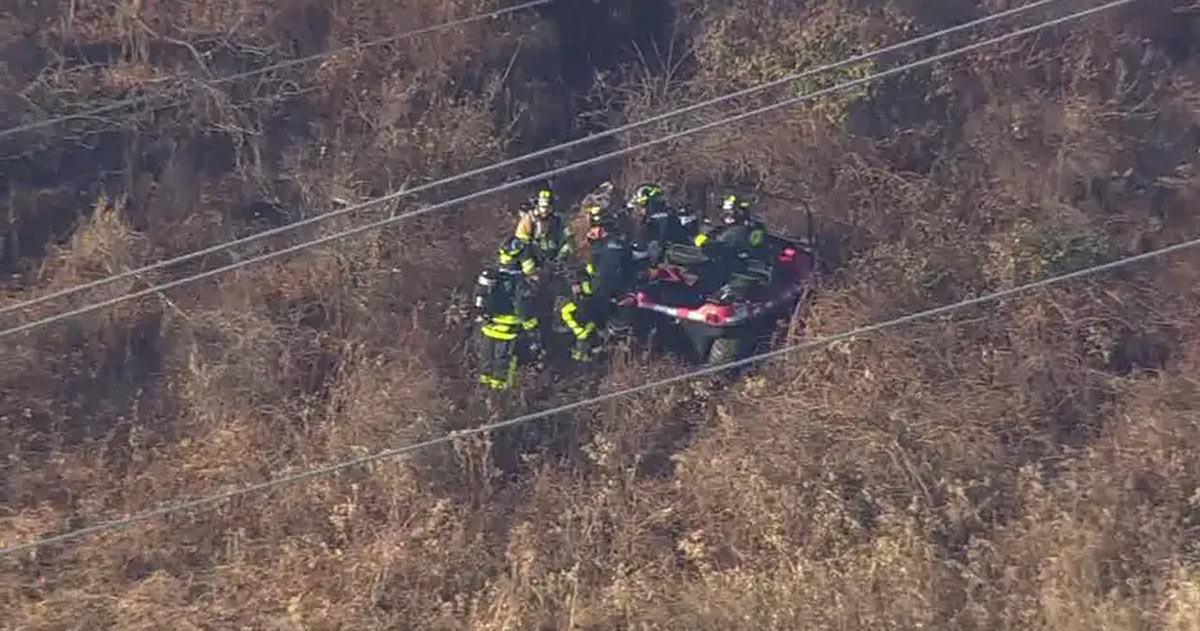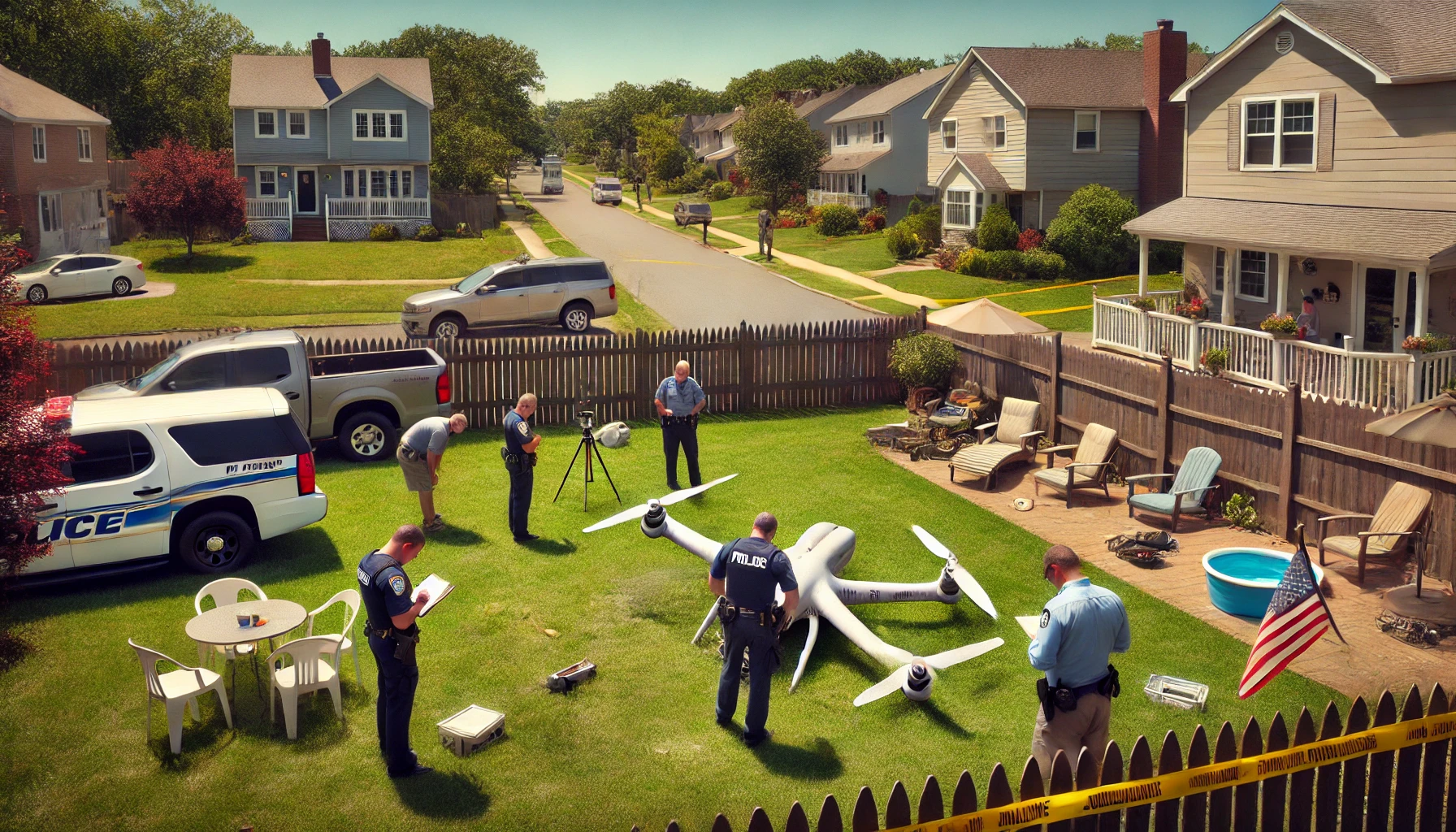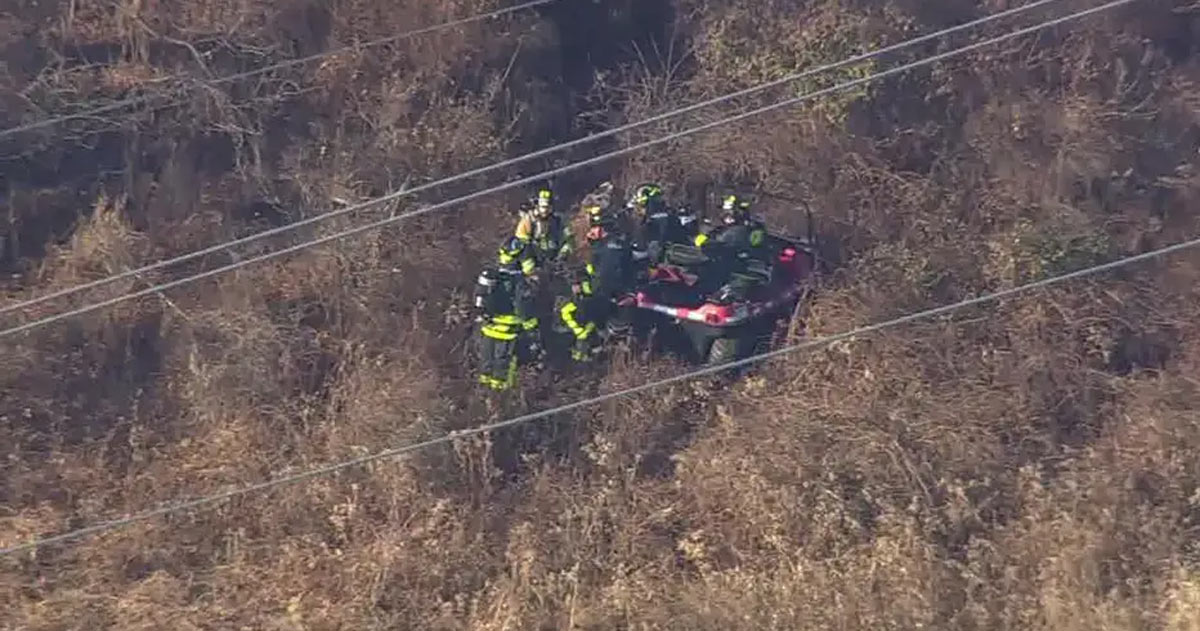Drone crashes in New Jersey have become an increasingly concerning issue, demanding a closer look at their causes, consequences, and preventative measures. This exploration delves into the recent surge in incidents, examining the contributing factors, regulatory landscape, and safety protocols crucial for responsible drone operation. We’ll also analyze the environmental and public safety impacts of these crashes, along with the liability and insurance implications for operators.
Understanding the complexities surrounding drone operation in New Jersey is paramount for ensuring both public safety and responsible technological advancement. This examination provides a balanced perspective, blending statistical data with expert insights to create a comprehensive understanding of this evolving challenge.
Drone Crashes in New Jersey: A Comprehensive Overview

Drone technology is rapidly advancing, offering numerous benefits across various sectors. However, the increasing use of drones also presents challenges, particularly concerning safety and regulation. This article examines recent drone crash incidents in New Jersey, exploring their causes, regulatory aspects, safety measures, and the broader implications for public safety and the environment.
Recent Drone Crash Incidents in New Jersey
Precise data on drone crashes in New Jersey is not readily available through a centralized public database. However, news reports and incident logs from various sources indicate a concerning number of incidents over the past year. The lack of comprehensive reporting makes a precise regional breakdown difficult. The following table presents hypothetical examples based on reported incidents in other states, illustrating the kinds of information typically involved in such reports.
Recent drone crashes in New Jersey highlight the importance of safe drone operation. Understanding payload capacity is crucial, and resources like information on remington drone loads can help pilots avoid overloading, a common factor in accidents. Properly managing weight contributes significantly to preventing future drone crashes in New Jersey and elsewhere.
Note that these are illustrative examples and do not represent actual data for New Jersey.
| Date | Location | Suspected Cause | Injuries/Damages |
|---|---|---|---|
| 2023-10-26 | Northern New Jersey | Pilot error (loss of control) | Minor property damage |
| 2023-08-15 | Central New Jersey | Mechanical failure (rotor malfunction) | Drone destroyed; no injuries |
| 2023-05-03 | Southern New Jersey | Adverse weather conditions (high winds) | Drone lost; no injuries |
| 2023-02-10 | Northern New Jersey | Collision with object (tree) | Drone damaged; no injuries |
The types of drones involved in these hypothetical incidents vary, encompassing both recreational and commercial models, highlighting the broad range of users and potential risks.
Causes of Drone Crashes in New Jersey

Several factors contribute to drone crashes. Understanding these causes is crucial for implementing effective preventative measures.
Recent reports of drone crashes in New Jersey highlight the growing concerns surrounding unmanned aerial vehicle safety. One particularly noteworthy incident involved a drone that was actually shot down, as detailed in this news report: nj drone shot down. This incident, among others, underscores the need for stricter regulations and increased awareness to prevent future drone crashes in New Jersey.
- Pilot Error: This is often the leading cause, encompassing issues like loss of control, improper pre-flight checks, and inadequate pilot training.
- Mechanical Failure: Malfunctions in drone components, such as motors, batteries, or propellers, can lead to unexpected crashes.
- Adverse Weather Conditions: Strong winds, rain, or snow can significantly impact drone stability and control.
- Wildlife Interference: Birds or other animals colliding with a drone can cause a crash.
- GPS Interference: Issues with GPS signals can lead to navigation problems and crashes.
Regulatory Aspects of Drone Operation in New Jersey
New Jersey, like other states, has regulations governing drone operation. These regulations aim to ensure public safety and responsible drone use.
Specific state laws and regulations regarding drone operation in New Jersey should be consulted directly from official state sources. Penalties for violations can include fines and potential legal action. Proposed changes to regulations are typically announced through official government channels and public notices.
Safety Measures and Best Practices
Safe drone operation requires adherence to best practices and rigorous safety procedures. This includes thorough pre-flight checks and continuous awareness of the surrounding environment.
- Conduct a thorough pre-flight inspection of the drone and its components.
- Check weather conditions before and during flight.
- Maintain visual line of sight with the drone at all times.
- Avoid flying near airports or other restricted airspace.
- Have a backup plan in case of technical malfunction or loss of control.
- Understand and comply with all relevant regulations.
A comprehensive pre-flight checklist should be used, covering aspects like battery levels, GPS signal strength, and overall drone condition. Post-flight checks should also be conducted to assess any damage and maintain proper drone maintenance.
Impact of Drone Crashes on the Environment and Public Safety

Drone crashes can have significant consequences for both the environment and public safety. The potential for harm depends on several factors, including the drone’s size, weight, and the location of the crash.
A hypothetical scenario: A large commercial drone carrying a heavy payload malfunctions and crashes into a densely populated area. This could result in injuries, property damage, and widespread disruption. If the payload was hazardous material, the consequences could be even more severe.
Insurance and Liability for Drone Operators
Drone operators in New Jersey should consider obtaining appropriate insurance coverage to mitigate potential liabilities. Several types of insurance are available, offering varying levels of protection.
| Insurance Type | Coverage | Cost (Example) | Notes |
|---|---|---|---|
| Liability Insurance | Covers third-party property damage and injuries | $500 – $2000 annually | Essential for most operators |
| Hull Insurance | Covers damage to the drone itself | Varies depending on drone value | Optional, but recommended |
Liability for drone crashes can extend to the operator, depending on the cause of the incident and adherence to regulations.
Technological Advancements for Drone Safety, Drone crashes in new jersey
Technological advancements are continually improving drone safety. Obstacle avoidance systems, enhanced GPS, and fail-safe mechanisms are reducing the likelihood of crashes.
Fail-safe mechanisms, such as automatic landing systems activated in case of GPS signal loss or low battery, can prevent many types of crashes. For example, if a drone loses its GPS signal during flight, an automatic landing system would safely return the drone to the ground, minimizing the risk of uncontrolled descent and potential damage.
The rise of drone technology presents both incredible opportunities and significant challenges. Addressing the issue of drone crashes in New Jersey requires a multi-faceted approach, encompassing stricter regulations, enhanced safety protocols, and continuous technological innovation. By understanding the causes, consequences, and preventative measures discussed herein, we can work towards a future where drones operate safely and responsibly, maximizing their benefits while minimizing potential risks to the public and the environment.
Q&A: Drone Crashes In New Jersey
What is the FAA’s role in regulating drones in New Jersey?
The Federal Aviation Administration (FAA) sets the primary regulations for drone operation nationwide, including New Jersey. State laws may add further restrictions.
Where can I find drone registration information?
Drone registration information, if required, is typically handled through the FAA’s website.
What are the penalties for flying a drone without a license?
Penalties for unlicensed drone operation vary but can include significant fines and potential legal action.
Are there specific no-fly zones in New Jersey?
Yes, no-fly zones exist near airports, critical infrastructure, and other sensitive areas. These are enforced by the FAA and local authorities.
